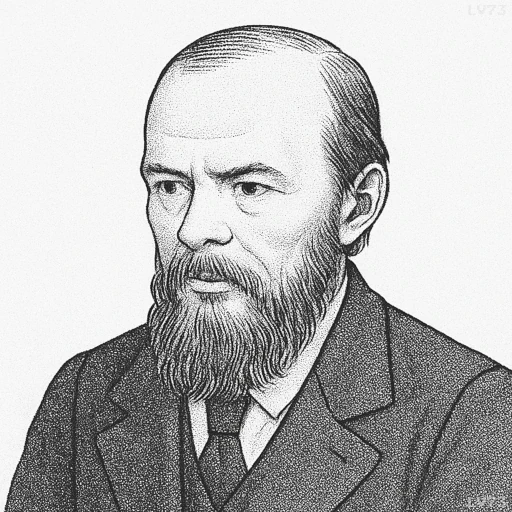“Realists do not fear the results of their study.”

- November 11, 1821 – February 9, 1881
- Born in the Russian Empire
- Novelist, philosopher
table of contents
Quote
“Realists do not fear the results of their study.”
Explanation
Fyodor Dostoevsky’s quote touches on the unflinching courage of realists, those who are committed to understanding and confronting the harsh truths of the human condition without hesitation. Realists, in this context, are individuals who pursue knowledge without illusions, accepting that what they discover might challenge prevailing norms or their own beliefs. Dostoevsky, as a writer, was known for his deep exploration of human psychology and the moral complexities of life, often delving into the darkness of human nature. His novels, like Crime and Punishment and The Brothers Karamazov, reflect this unwavering pursuit of truth, even when it’s uncomfortable.
The phrase also highlights the intellectual courage required in confronting difficult realities. For Dostoevsky, this could refer to the existential questions of life, the moral dilemmas of individuals, or the political unrest of 19th-century Russia. At the time, Russia was undergoing rapid changes, from the decay of serfdom to the rise of revolutionary ideas. In such a climate, the idea of studying human nature and society without fear of the consequences was especially radical, as many people preferred to ignore or deny uncomfortable truths about the system they lived in.
In the modern context, this quote remains highly relevant, particularly in a world where political correctness, denialism, and cognitive biases often shield people from confronting uncomfortable truths. Today, in an age of information overload and social media echo chambers, Dostoevsky’s idea encourages a return to critical thinking and intellectual honesty. Whether in science, sociology, or political discourse, realists must not shy away from the often inconvenient or controversial truths that may arise through their studies, similar to how modern thinkers like Noam Chomsky and Yuval Noah Harari challenge popular ideologies with facts and reason.
Would you like to share your impressions or related stories about this quote in the comments section?


